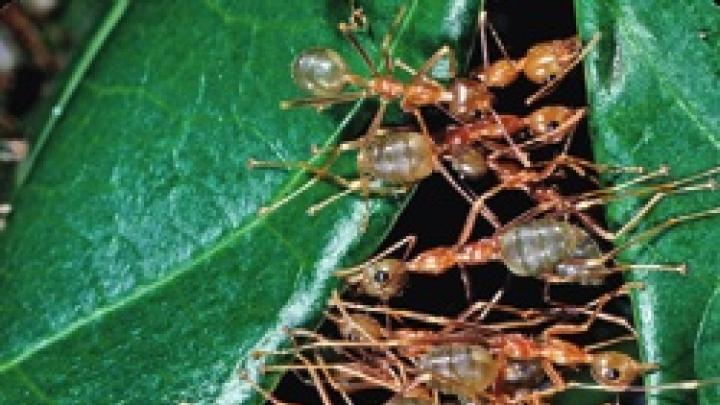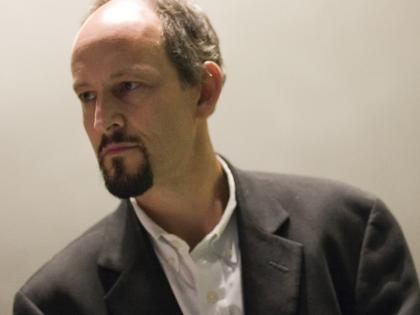Extraterrestrial visitors to Earth a million years ago would have found a planet teeming with 1,000 trillion social creatures, from 20,000 species—mostly insects. So report Bert Hölldobler and Edward O. Wilson, Pellegrino University Professor emeritus, in The Superorganism: The Beauty, Elegance, and Strangeness of Insect Societies (W.W. Norton, $65). The social insects merit further study today, the authors say, for many reasons.
The ants, bees, wasps, and termites are among the most socially advanced nonhuman organisms of which we have knowledge. In biomass and impact on ecosystems, their colonies have been dominant elements of most of the land habitats for at least 50 million years. Social insect species existed for more than an equivalent span of time previously, but were relatively much less common. Some of the ants, in particular, were similar to those living today. It gives pleasure to think that they stung or sprayed formic acid on many a dinosaur that carelessly trampled their nests.
The modern insect societies have a vast amount to teach us today. They show how it is possible to “speak” in complex messages with pheromones. And they illustrate…how the division of labor can be crafted with flexible behavior programs to achieve an optimal efficiency of a working group. Their networks of cooperating individuals have suggested new designs in computers and shed light on how neurons of the brain might interact in the creation of mind. …The study of ants, President Lowell, of Harvard University, said when he bestowed an honorary degree on the great myrmecologist William Morton Wheeler in the 1920s, has demonstrated that these insects, “like human beings, can create civilizations without the use of reason.”
The superorganisms are the clearest window through which scientists can witness the emergence of one level of biological organization from another. This is important, because almost all of modern biology consists of a process of reduction of complex systems followed by synthesis. During reductive research, the system is broken down into its constituent parts and processes. When they are well enough known, the parts and processes can be pieced back together and their newly understood properties used to explain the emergent properties of the complex system. Synthesis is in most cases far harder than reduction.…[Biologists are] still a long way from understanding fully how molecules and organelles are assembled, arranged, and activated to create a complete living cell…[and] from mastering the many complex ways in which species interact to create the higher-level patterns.
Social insects, in contrast, offer a far more accessible connection between two levels of biological organization.…Both of these levels, organism and colony, can be easily viewed and experimentally manipulated. As we will show…it is now possible to press far ahead in this fundamental enterprise of biology.








